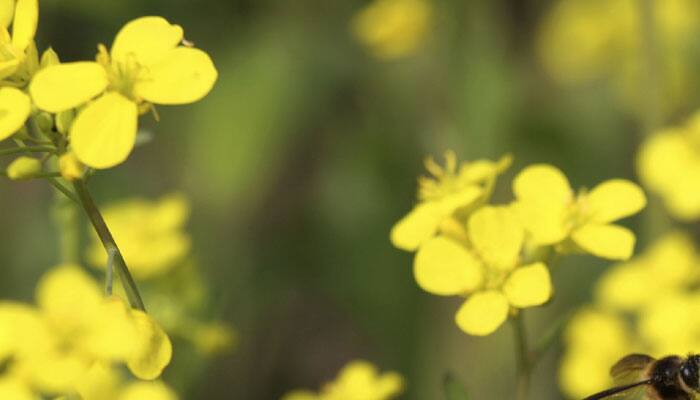New Delhi: The Genetic Engineering Appraisal Committee (GEAC), India's regulator for GM crops, on Thursday cleared the genetically modified (GM) mustard for commercial use in the country and recommended its approval to the environment ministry.
In a submission to the Environment Ministry, Genetic Engineering Appraisal Committee (GEAC) has given a “positive recommendation but with certain conditions”, News agency PTI reported.
The GEAC's recommendation came amid opposition by anti-GM groups, including RSS-affiliated bodies.
If approved, mustard would be the first genetically modified direct food crop to be commercially launched in India, after the failed attempts with Bt brinjal. So far, GM cotton is the only crop which has been allowed in India.
"The agenda of GM mustard came up in a meeting of the GEAC today. It has given a positive recommendation. It has recommended the approval of GM Mustard for commercial release," a Ministry official told the PTI.
With its green signal, the GEAC has pushed the hybrid plant developed by scientists at the Delhi University closer to becoming the country's first edible GM crop.
RSS-affiliate Swadeshi Jagran Manch (SJM), who criticised the move, daid allowing the commercial use of GM mustard would impact allied agri-activities.
Some anti-GM activists asserted that in okaying the commercial use of GM mustard, the GEAC has "yet again proven" to be "unscientific and uncaring" to the health of citizens.
They said Environment Minister Anil Madhav should uphold BJP's manifesto promise that GM foods will not be allowed and reject the GM mustard "just like the Bt brinjal variety was rejected seven years ago".
The Centre for Genetic Manipulation of Crop Plants (CGMCP), Delhi University South Campus, had submitted an application to the GEAC for the environmental release of GM mustard (Brassica juncea) hybrid DMH-11 and the use of parental events (varuna bn 3.6 and EH2 mod bs 2.99) for the development of a new generation of hybrids.
The environment ministry had received over 700 comments from various stakeholders, including farmers and researchers, on the Assessment of Food and Environmental Safety (AFES) report on GM Mustard, which it had earlier posted on the ministry website.
The application was submitted in 2015 after which several rounds of meeting were held by the GEAC. The sub-committee also convened meetings with experts.
The GEAC also heard the views of various NGOs not in favour of giving an approval to GM crops.
An anti-GM group had earlier alleged that sub committee, did not have any health expert and three of its members have conflict of interest.
Coalition for a GM-Free India had questioned whether the risk assessment report given by the sub-committee, which has claimed that the hybrid does not pose any risk to biodiversity or agro-ecosystem, was even "reliable and scientific" as it had no health experts in it.
Today's decision, which many of the anti-GM activists were unaware of, got sharp reactions from Swadeshi Jagran Manch (SJM).
"We are against the commercial use of any genetically modified crops, including the GM mustard. And we will request that the government should not allow its commercial cultivation," SJM co-convener Ashwani Mahajan said.
Environment activist Vandana Shiva had also opposed GM mustard earlier, saying it is "illegal" and developers have done "fraud science".
The environment ministry has to now take a final call on this.
(With PTI inputs)
















